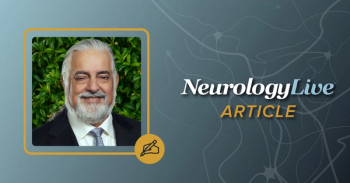
Advances in Minimally Invasive Diagnostic Tests for Neurodegenerative Diseases: David Shprecher, DO, MSci, FAAN
The director of movement disorders at the Banner Sun Health Research Institute talked about making strides in developing minimally invasive tests and imaging ligands for neurodegenerative diseases, such as Parkinson disease. [WATCH TIME: 2 minutes]
WATCH TIME: 2 minutes
"I think we really would like to see tests that are minimally invasive, that could be therefore more broadly available and broadly utilized."
Prior studies have shown that distinguishing patients with atypical parkinsonisms from those with idiopathic Parkinson disease (PD) can be a significant challenge for clinicians because of the similar symptoms presented in the diseases. For instance, progressive supranuclear palsy (PSP) and corticobasal degeneration can exhibit similar pathological features and encompass various phenotypic variants.1 Additionally, previous research indicated that incorrect treatment provides limited benefit to patients, complicates care needs, and increases the patient burden. Consequently, it is important for providers to make accurate diagnoses, as this can determine the most effective treatment and management strategies.
Shprecher, director of movement disorders at the Banner Sun Health Research Institute, sat down with NeurologyLive® at the Congress to discuss the potential benefits of developing minimally invasive tests for neurodegenerative diseases. Shprecher, who also serves as a clinical associate professor at University of Arizona-Phoenix, spoke about how synuclein imaging ligands can improve the diagnosis of synucleinopathies. Furthermore, he talked about the implications of developing tau ligands for diseases other than Alzheimer disease, such as PSP.
REFERENCES
1. McFarland NR. Diagnostic Approach to Atypical Parkinsonian Syndromes. Continuum (Minneap Minn). 2016;22(4 Movment Disorders):1117-1142. doi:10.1212/CON.0000000000000348
Newsletter
Keep your finger on the pulse of neurology—subscribe to NeurologyLive for expert interviews, new data, and breakthrough treatment updates.










